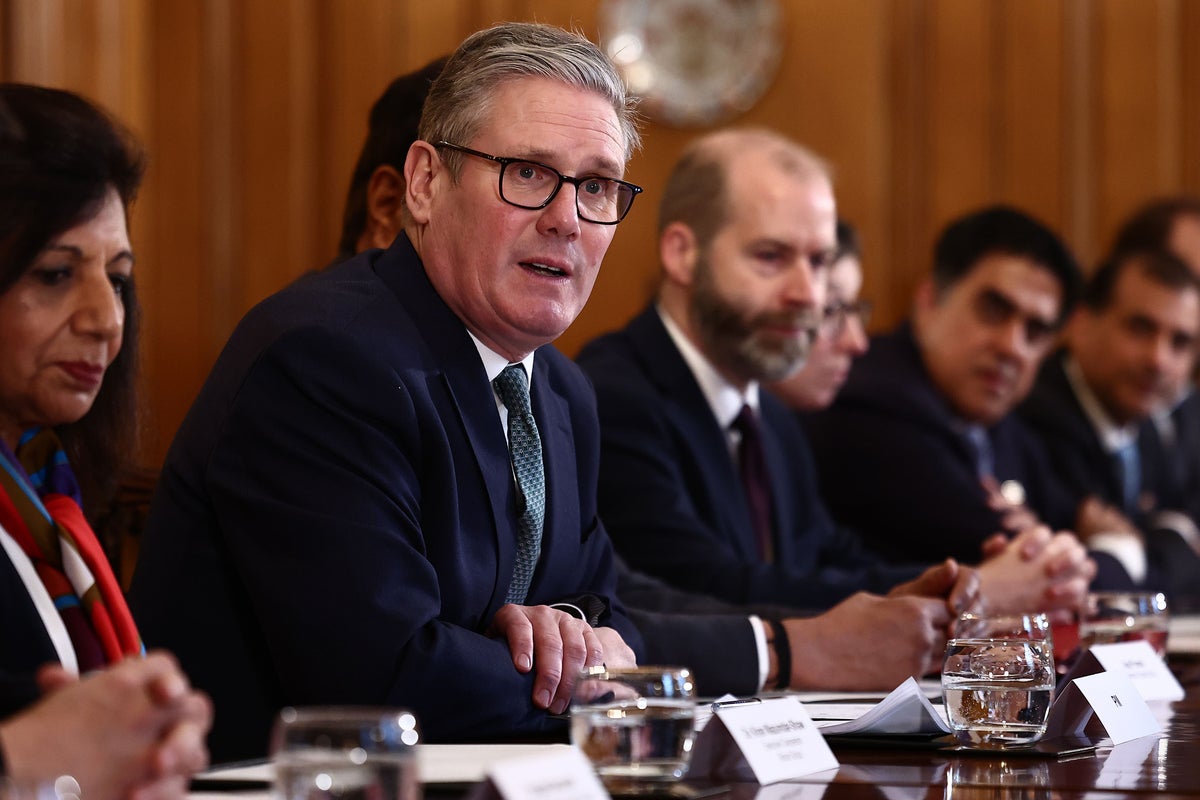Sir Keir Starmer has struck Britain’s biggest post-Brexit trade deal, hailing a “landmark” agreement with India that will boost trade with the country by £25.5bn.
In a major coup for the prime minister, he said the agreement focused on whiskey, gin, cars and cosmetics will boost the economy and cut prices for consumers.
A post-Brexit deal with India, one of the world’s fastest-growing economies, has been a priority for successive prime ministers, with Boris Johnson famously promising to strike an agreement by Diwali in October 2022.
As Labour reels from the shock of its local election drubbing, Sir Keir hopes the announcement will help get his Labour government back on track. It also comes as Britain struggles to get a trade deal with the US – which it hopes would exempt it from Donald Trump’s tariffs on steel and cars – over the line.
The announcement sent the pound to a three-year high against the US dollar.
The prime minister said: “Through this government’s stable and pragmatic leadership, the UK has become an attractive place to do business. Today we have agreed a landmark deal with India – one of the fastest growing economies in the world, which will grow the economy and deliver for British people and business.
“Strengthening our alliances and reducing trade barriers with economies around the world is part of our Plan for Change to deliver a stronger and more secure economy here at home.”
The deal will immediately halve tariffs on whisky and gin from 150 per cent to 75 per cent, followed by a cut to 40 per cent in 2035. It will also cut automotive tariffs from over 100 per cent to just 10 per cent, opening up the Indian market to British carmakers as they are grappling with the impact of Mr Trump’s tariffs on the sector.
The government said British shoppers would see lower prices for clothes, footwear and foods including frozen prawns as the UK reduces barriers for imports from India.
The deal will boost bilateral trade by £25.5bn, the Department for Business and Trade said, adding £4.8bn to UK GDP each year.
The deal was struck after long-running negotiations between British and Indian officials, with business secretary Jonathan Reynolds undergoing a final round of discussions with the country’s commerce minister Piyush Goyal last week.
Mr Reynolds said: “By striking a new trade deal with the fastest-growing economy in the world, we are delivering billions for the UK economy and wages every year and unlocking growth in every corner of the country, from advanced manufacturing in the North East to whisky distilleries in Scotland.
“In times of global uncertainty, a pragmatic approach to global trade that provides businesses and consumers with stability is more important than ever.”
Indian prime minister Narendra Modi said: “These landmark agreements will further deepen our Comprehensive Strategic Partnership, and catalyse trade, investment, growth, job creation, and innovation in both our economies. I look forward to welcoming PM Starmer to India soon.”
A major sticking point in the talks was believed to be Indian demands for looser restrictions on visas for those coming to the UK, but Downing Street on Tuesday played down suggestions the agreement would push up immigration.
Critics said Britain would have been able to agree a better deal with India as part of the EU, which is also holding talks with the country. The European Movement UK welcomed the deal but said the bloc “has more clout” and the UK would be better off as part of it.
Meanwhile, Best for Britain, which campaigns for closer EU-UK ties, said a customs deal with the EU could boost UK GDP by 2.2 per cent, more than 20 times the impact of the agreement with India.
The deal with India comes after post-Brexit agreements between the UK and Australia, New Zealand, Japan and other countries.
As well as whisky and gin, the UK-India will cover advanced manufacturing, including the aerospace industry, clean energy, life sciences and the creative and UK services sectors.
It was welcomed as a “once in a generation boost” by exporters, with Scottish Whisky Association chief executive Mark Kent saying: “The reduction of the current 150 per cent tariff on Scotch Whisky will be transformational for the industry, and has the potential to increase Scotch Whisky exports to India by £1bn over the next 5 years, creating 1,200 jobs across the UK.”
And the boss of the Premier League said the market is “incredibly important” to the competition and its clubs.
Richard Masters added: “The continued growth of the Premier League and UK businesses in India will have a positive impact on our domestic economy and we welcome the news of this new trade deal secured by government, which will support UK businesses operating in India.”

